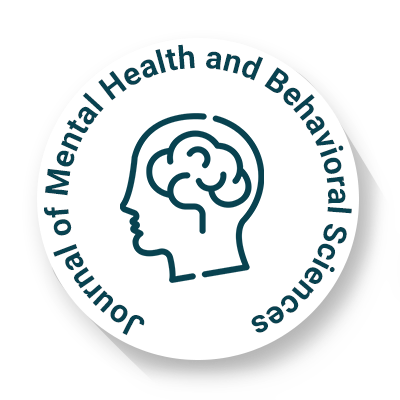
Journal of Mental Health and Behavioral Sciences
OPEN ACCESS

OPEN ACCESS
Mental health is a fundamental aspect of overall well-being, influencing emotional stability, cognitive function, and behavioral regulation. It determines an individual’s ability to manage stress, maintain interpersonal relationships, and perform daily tasks effectively. The World Health Organization (WHO) defines mental health as a state of well-being in which an individual realizes their potential, copes with life’s stressors, functions productively, and contributes to society. This perspective highlights that mental health extends beyond the absence of psychiatric disorders to include psychological resilience and emotional balance.
Mental health exists on a continuum, ranging from optimal functioning to severe psychiatric conditions. A stable mental state is associated with emotional regulation, cognitive flexibility, and engagement in purposeful activities. Conversely, mental health disorders present with disturbances in mood, cognition, and behavior, leading to significant distress and impairment in daily life. Common psychiatric conditions include depression, anxiety disorders, schizophrenia, and bipolar disorder, all of which have substantial personal and societal implications.
The etiology of mental health disorders is multifactorial, involving genetic, neurobiological, and environmental factors. Dysregulation of neurotransmitters such as serotonin, dopamine, and gamma-aminobutyric acid (GABA) is associated with mood and anxiety disorders. Additionally, hyperactivity of the hypothalamic-pituitary-adrenal (HPA) axis is implicated in stress-related psychiatric conditions. Environmental risk factors, including adverse childhood experiences, trauma, socioeconomic stressors, and substance abuse, further contribute to the onset and progression of mental illnesses.
Accurate diagnosis of psychiatric disorders requires a comprehensive clinical evaluation, incorporating structured interviews and standardized psychometric assessments. Common diagnostic tools include the Generalized Anxiety Disorder 7-item scale (GAD-7), the Beck Depression Inventory (BDI), and the Mini International Neuropsychiatric Interview (MINI). Since psychiatric symptoms often overlap with neurological, endocrine, and systemic disorders, differential diagnosis is crucial to ensuring appropriate treatment.
The management of mental health disorders necessitates an integrative approach combining psychotherapy, pharmacotherapy, and lifestyle interventions. Cognitive-behavioral therapy (CBT) is the most widely used psychotherapeutic intervention, focusing on cognitive restructuring and behavioral modifications. Pharmacological treatments, including selective serotonin reuptake inhibitors (SSRIs) and serotonin-norepinephrine reuptake inhibitors (SNRIs), are prescribed based on clinical presentation. While benzodiazepines may provide short-term symptom relief, their potential for dependency necessitates cautious prescribing.
In addition to conventional treatments, lifestyle modifications play a vital role in promoting mental well-being. Regular physical activity has been shown to enhance neuroplasticity and reduce stress, while mindfulness-based interventions improve emotional regulation. A balanced diet, rich in omega-3 fatty acids, magnesium, and B vitamins, supports neurotransmitter function and overall brain health. Additionally, maintaining good sleep hygiene and limiting the consumption of stimulants, such as caffeine and alcohol, contribute to improved mental health outcomes.
In conclusion, mental health is a critical determinant of overall well-being and requires a comprehensive approach for effective management. Early diagnosis, evidence-based interventions, and preventive strategies are essential in mitigating the burden of mental illness. Enhancing awareness and reducing stigma remain key to ensuring access to mental health care and fostering a supportive environment for affected individuals.